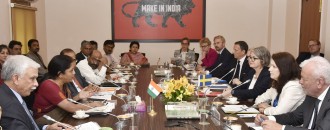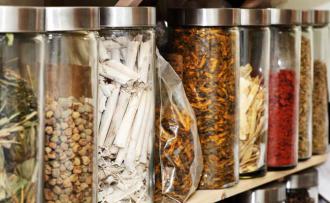
Sitharaman and Swedish minister set up mechanism to further trade
Sourced from Press Information Bureau The Eighteenth Session of India-Sweden Joint Commission for Economic, Industrial and Scientific Cooperation (JCEC) was held in New Delhi on May 17, 2017. The Indian delegation led by Nirmala Sitharaman, and the Swedish delegation led by Ann Linde, Minister for Trade and EU Affairs, Ministry for Foreign Affairs, expressed their satisfaction that considerable substance and contents had been added to bilateral relations during the last 2 years and reiterated their mutual desire and commitment to further strengthen the existing trade and investment relations and all-round bilateral cooperation. The deliberations at the JCEC meeting provided an excellent opportunity to review the current state of ongoing cooperation in diverse fields such as Trade and Investment, Sustainable Urban development, Micro Small ...

India, China for MoUs in mining, tourism and traditional medicine fields
The Dollar Business Bureau The Union Cabinet, chaired by the Prime Minister of India, on Wednesday, gave its approval for cooperation between India and China in various fields, in a move to enhance bilateral ties between the two countries. According to an official release, the Union Cabinet, chaired by Narendra Modi, has given its approval for cooperation in the fields of various fields, which include mines and mineral sector, traditional medicine, tourism, among others. In a move to encourage the cooperation in the above-mentioned fields, the Cabinet has given its approval for ‘signing a Memorandum of Cooperation (MoU) s, extension of tenure in the case of existing agreements. A MoU for cooperation between India and the People’s Republic of ...

Awareness of export potential of herbs is low in India: NPMB
Sachin Manawaria | The Dollar Business According to a government report, the global herbal market is expected to grow steadily in the coming years with growing demand for herbal products worldwide. The Ministry of Science and Technology says in its report that the global herbal market is expected to be grow to around $5 trillion by 2050, but India’s current share is estimated at below 2%. The report adds that herbal remedies are important in countries like China and would become increasingly important in developing countries like India in the coming years. Standardisation is a bottleneck that has gained some attention among companies producing herbal products across the world. However, efforts are required to develop the cultivation of such ...


